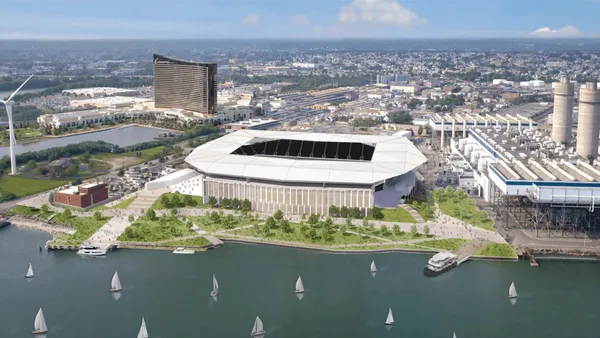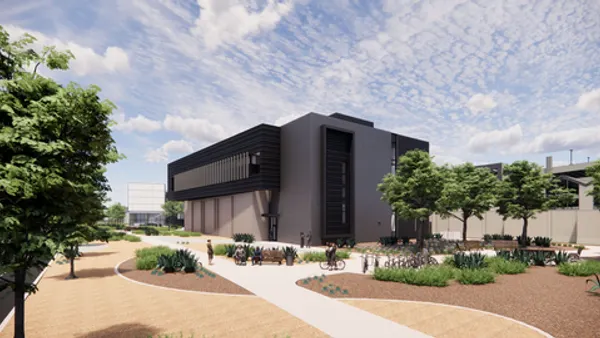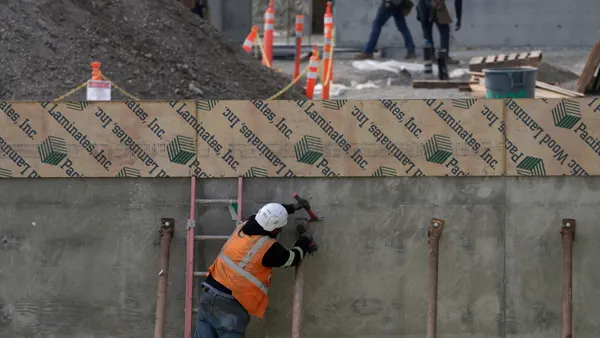Dive Brief:
- In a recent presentation, Fort Bragg officials outlined a $699 million plan for six years of construction projects in addition to the $343 million the Department of Defense has underway at the U.S. Army installation in North Carolina, The Fayetteville Observer reported.
- Planned projects include the GFF Architects-designed Freedom Crossing at Fort Bragg, a LEED-certified entertainment and retail district for active and retired duty service members and their families. The project has a $27 million budget, according to military retailer Army and Air Force Exchange Service, and will include three retail buildings totaling 40,000 square feet, a 42,000-square-foot movie theater and an outdoor public entertainment and event plaza. Other projects include more retail offerings, but the bulk of construction will be for the benefit of the installation's special operations mission. Fort Bragg officials will work off a $788 million "wish list" that includes a fire station, airfield upgrades, tactical equipment maintenance facilities, barracks, infrastructure and training areas.
- During the past 33 years, Fort Bragg, which is home to 54,0000 troops and accommodates 14,000 civilian workers, has grown from 20.3 million square feet to 53.6 million square feet and seen $6 billion of construction projects. The base, which is the world's largest military installation by population, is expected to continue to grow in the coming years.
Dive Insight:
The U.S. Air Force has a reported $1 billion effort ahead in trying to rebuild Tyndall Air Force Base near Panama City, Florida, after it was devastated by Hurricane Michael in October. The base is still operational thanks to tents and temporary structures, but the division in charge of Air Force contracting, the Air Force Installation and Mission Support Center at Joint Base San Antonio Lackland, will oversee a complete rebuild, the San Antonio Business Journal reported, after damage assessments are complete. The San Antonio unit has an annual operating budget of $10 billion, according to the Journal, and supports all of the Air Force's U.S. bases and installations.
Maj. Gen. Brad Spacy told the Journal that the Air Force would take the opportunity to incorporate new technology and efficiencies into the base's reconstruction, working with the construction industry to "find the right answers" in making base infrastructure more resilient.
Military construction projects often provide an opportunity for private contractors. For instance, the U.S. Army Corps of Engineers has a hand in projects as varied as veterans' hospitals, coastal barriers and the U.S.-Mexico border wall, keeping both large and small civilian contractors busy, and maintains a list of contacts that can assist construction companies in becoming qualified to bid on its projects.









